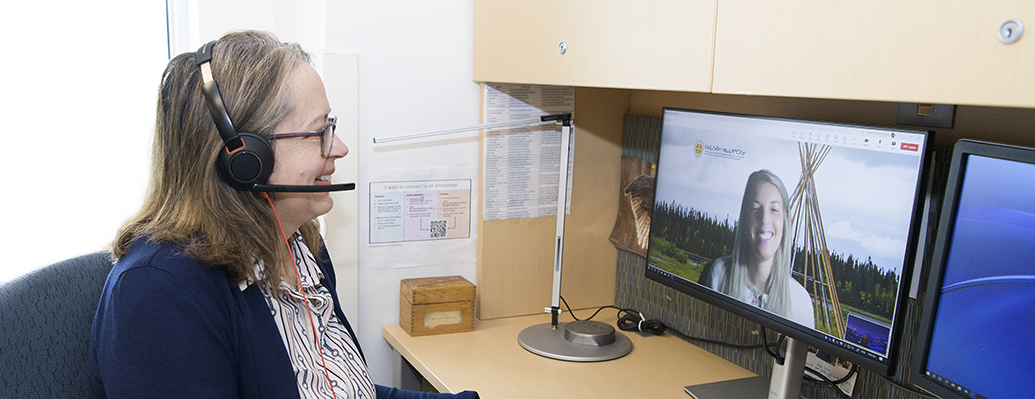Two new ambassadors help promote telehealth at the MUHC
We are pleased to announce the arrival of two new ambassadors to the MUHC Telehealth community: Dr. Aurore Côté and Virginia Allen. Their contributions will strengthen the expertise and reach of telehealth at the MUHC and its partner institutions.
Virginia Allen, Administrative Agent for Allergy and Dermatology at the Montreal Children’s Hospital, is already seeing the positive impact of telemedicine clinics:
“Telemedicine clinics in dermatology and allergology are transforming access to care for northern communities. In dermatology, thanks to high-quality photos taken by local nurses, dermatologists can accurately assess children’s skin problems. Many children can now be evaluated remotely, avoiding costly and exhausting trips to Montreal.”
.jpg)
Dr. Côté, who has fully integrated telemedicine into her practice, shares:
“Patients, especially parents, really appreciate this approach. They don’t have to commute, which saves them a lot of time. Teenagers, for example, are delighted that they don’t have to miss school (we offer appointments from 4 to 6 p.m.) and that they can avoid travel. Interactions via telemedicine are very pleasant, and even small children adapt well — they’re often very talkative.”
.jpg)
The goal of the MUHC Telehealth Ambassadors Program is to encourage the implementation and development of telehealth services through peer-to-peer support. Committed clinicians, managers, and clerical staff serve as local reference points — supporting colleagues, sharing best practices, and promoting the tangible benefits of telehealth. They also participate in training, awareness-raising, and change management activities in their respective areas.
Good news: the number of telehealth consultations at the MUHC is up by 18%.
Since last year, more than 70% of specialties have reported growth of over 10% in long-distance consultations. These results confirm the strong interest in and long-term potential of this model of care.

Teaching Mission
Not only does telehealth improve access to specialists, but the MUHC is also committed to education and peer-to-peer learning. One example is the Tumour Board, which brings together interdisciplinary teams to discuss patient cases. Tele-education also enables direct teaching for patients. For instance, it can be used to demonstrate the proper technique for administering insulin to diabetic patients, helping them avoid unnecessary travel.
The future of telehealth
Telehealth paves the way for a profound transformation in healthcare. Technological advances now allow for more personalized, proactive, and accessible care — regardless of the patient’s location. For those living in remote areas or with reduced mobility, telehealth provides rapid access to specialists without the burden of travel. By easing pressure on emergency departments and encouraging interdisciplinary collaboration, it contributes to a more efficient healthcare system — one built around patients’ needs.

